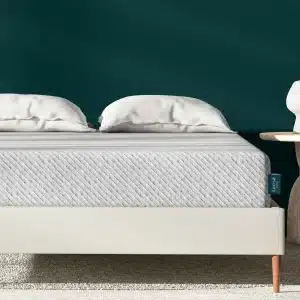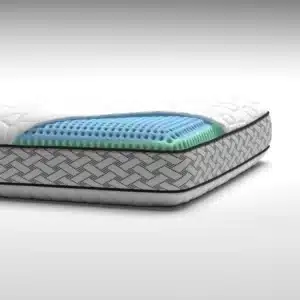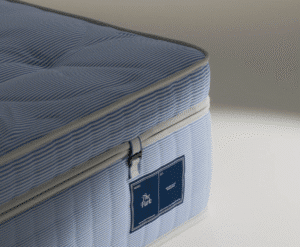What Type of Sleeper Are You? Discover Your Sleep Style
Are you curious about your sleep style? Many people ask, Am I a deep sleeper? If you find yourself sleeping through alarming noises or feeling groggy upon waking, this may be a sign that you are indeed a deep sleeper. Understanding your sleep type is crucial for optimizing your rest and daily performance.
I’m Ben Trapskin, the creator of Yawnder, and having navigated my own sleep struggles, I’m dedicated to helping others enhance their sleep quality. Let’s explore what defines a deep sleeper and how you can pinpoint your own sleep style through our engaging quiz.
Am I a Deep Sleeper? Signs to Consider
If you’ve ever wondered if you’re a deep sleeper, consider these key indicators:
– Noise Tolerance: Do you sleep through thunderstorms or loud alarms? Deep sleepers often remain undisturbed by typical nighttime disturbances.
– Sleep Continuity: Once you fall asleep, do you rarely wake up until morning? This uninterrupted sleep is a hallmark of deep sleep.
– Grogginess upon Awakening: If waking up feels like an uphill battle, with lingering confusion, you might be a deep sleeper.
The way we sleep is influenced by a combination of our internal clocks, daily energy levels, and lifestyle choices. Recognizing your sleep style can significantly improve your well-being and daily energy.
What Defines a Deep Sleeper?
Genetics
Your genetic makeup is a significant factor in your sleeping patterns. Some individuals are predisposed to deeper sleep due to hereditary traits passed down through generations.
Lifestyle Choices
How you live your life—from daily exercise to dietary habits—can impact your sleep depth. Regular physical activity and nutritional balance tend to promote deeper slumber, while stress and irregular sleep schedules can impede it.
Brain Wave Activity
Deep sleep is characterized by the presence of slow brain waves known as delta waves, which are essential for restorative rest, allowing you to wake up refreshed and energized.
Sleep Disorders
Conditions like sleep apnea or chronic insomnia can disrupt your sleep patterns. If you suspect a deeper issue, seeking professional help is advisable.
The Pros and Cons of Being a Deep Sleeper
Understanding whether you are a deep sleeper comes with its own set of advantages and disadvantages:
Benefits
– Restorative Sleep: Deep sleepers usually enjoy higher-quality rest, crucial for cognitive function, mood regulation, and overall health.
– Less Frequent Awakenings: If you sleep deeply, you’re likely to have fewer nighttime disruptions, resulting in a more continuous sleep experience.
Drawbacks
– Difficulty Waking Up: If your alarm feels more like a suggestion, the struggle to rise on time can be challenging, especially for early commitments.
– Health Risks: Being a heavy sleeper may lead to missing significant sounds, like smoke alarms, which can pose safety hazards.
Health Considerations for Deep Sleepers
To enhance your sleep quality, consider the following:
– Aim for 7-9 Hours of Sleep: Regardless of your sleep depth, maintaining consistency is vital for optimal health.
– Use Multiple Alarms: Experiment with various alarm systems, such as vibrating alarms, to ensure you wake up when needed.
Understanding if you’re a deep sleeper can help you tweak your lifestyle habits for better health and productivity. Excited to discover your sleep type? Take our Am I a Deep Sleeper? quiz for personalized insights and actionable tips!
Different Types of Sleepers
1. Morning Lark: If waking up before dawn fills you with energy, you’re likely a Morning Lark. You thrive on consistency and are most active in the early hours.
Key Traits: Early riser, high morning energy, early bedtime.
2. Night Owl: Those who find inspiration and productivity at night are Night Owls. Late bedtimes and waking up later in the day are common.
Key Traits: Late riser, high nightly energy, late bedtime.
3. The Napper: If napping is part of your routine, you may be The Napper, experiencing energy dips throughout the day.
Key Traits: Frequent naps, short night sleep, periodic energy slumps.
4. The Afternooner: You feel energetic midday and often indulge in afternoon naps. A balanced routine helps maintain your energy.
Key Traits: Peak energy during midday, afternoon naps, balanced overall sleep.
5. The Sloth: If you often feel tired despite long sleep durations, you may be categorized as The Sloth.
Key Traits: Prolonged sleep, low energy, frequent tiredness.
6. The Swift: High energy and minimal tiredness define The Swift, who can function well on less sleep.
Key Traits: Short sleep durations, high energy, low fatigue.
Understanding these categories enhances your ability to improve sleep habits, ultimately fostering a better lifestyle.
How to Identify Your Sleep Type
To accurately determine your sleep type, keeping a sleep diary can be invaluable. Track your sleep over weeks, noting:
– Bedtime and Wake Time: Record when you fall asleep and when you wake up naturally without an alarm.
– Sleep Quality: Rate your sleep quality on a scale of restful to restless.
– Daily Energy Levels: Monitor fluctuations in your energy throughout the day.
Alternatively, consider using sleep tracking apps, which provide automated insights into your sleep cycles.
Tips for Improving Your Sleep Based on Your Type
Morning Larks:
– Stick to an early bedtime and engage in morning exercise to kickstart your day.
Night Owls:
– Maintain a consistent sleep schedule and create a relaxing pre-sleep routine to ease into rest.
Nappers:
– Schedule regular naps and avoid long nap durations to support evening sleep.
Afternooners:
– Plan activities that require focus during peak energy times and maintain a balanced diet.
Sloths:
– Keep a regular schedule and incorporate light physical activities to boost energy.
Swifts:
– Make the most of short naps, and focus on high-energy workouts to energize your day.
Frequently Asked Questions
How do I know if I’m a deep sleeper?
If waking up feels like a struggle, or if you frequently sleep through loud noises, these may be indicators of a deep sleep pattern.
What makes someone a deep sleeper?
Genetics, lifestyle choices, and brain activity during sleep all contribute to how deeply one sleeps.
Is being a deep sleeper detrimental?
Generally, deep sleep is beneficial, but it can pose challenges, like missing alarms or urgent sounds.
Conclusion
At Yawnder, we recognize that everyone’s sleep needs are distinct. We are committed to helping you achieve the best rest through high-quality products and tailored recommendations. Our free mattress recommendation quiz can guide you to the perfect mattress suited to your sleep type. Explore our range of bedding options to further enhance your sleep environment.
Transform your sleep experience and wake up revitalized each morning. For more tips and personalized insights, be sure to visit our sleep study page. Sleep well, live well!


















